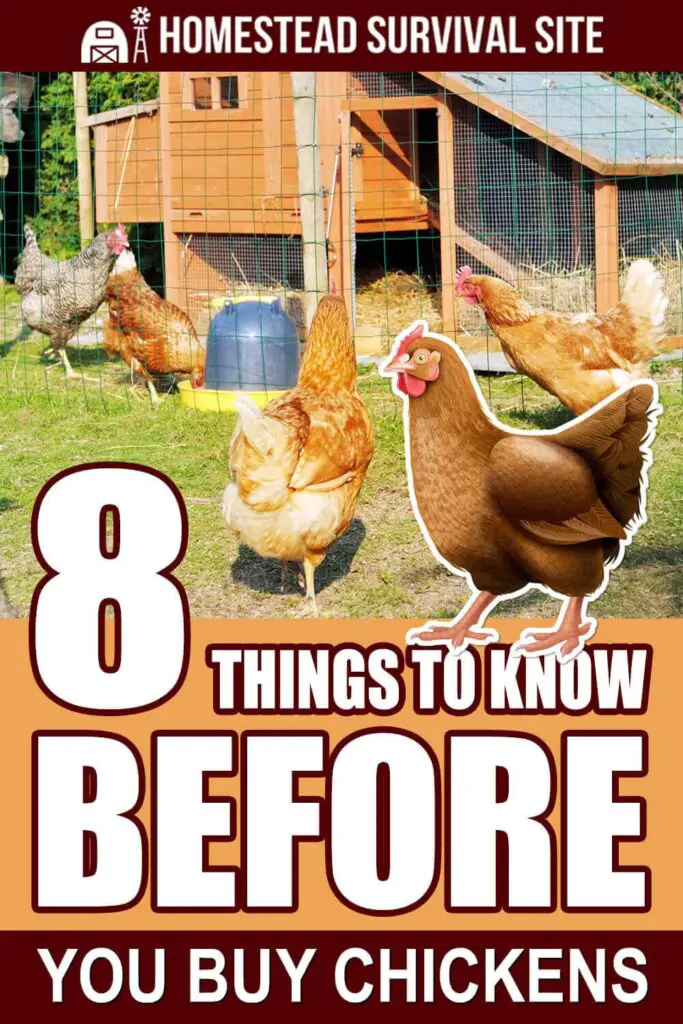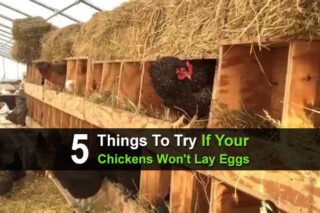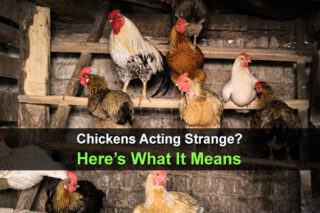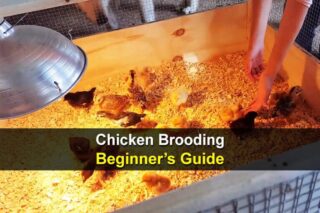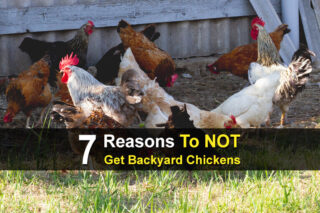Estimated reading time: 7 minutes
So you have decided you want to get chickens. You dream of the idyllic setting of scattering scratch grains for them in the morning and picking warm, fresh, eggs out of the nest box every afternoon.
Owning a small flock of chickens can be a rewarding experience, but there are a few things to keep in mind as you move forward into the world of chicken ranching.
Want to save this post for later? Click Here to Pin It On Pinterest!
1. Know What Kind of Chickens You are Getting
Chicken purists may argue this but there are four basic types of birds you might be able to get.
- Meat birds
- Egg Layers
- Dual Purpose
- Fancy (Show birds, Banties, Oddities, Rare purebreds)
Meat birds are dominated by Cornish Crosses. These birds grow fast, and don’t move around much. So they give you a large tender carcass relatively quickly. One of the biggest drawbacks is these birds can be kind of wimpy, and sometimes just keel over dead. They also seem to break their legs easily.
If you want a little more traditional bird, slightly slower growing is the Red Ranger, or the Freedom Ranger. These are more active, like real chickens; they finish a little smaller but are much hardier.
Commercial egg layers rely mostly on the White Leghorn (pronounced Leggern).
I actually picked up about 50 layers a few years ago. A local egg operation was getting rid of their older birds. These poor birds were stuffed four in a cage, and when I got them home I put them in with my flock and realized they didn’t even know how to roost. We lost about half of them within a week but the rest were actually really great birds. Not at all flighty like most books tell you Leghorns are.
If you are not raising chickens exclusively for meat, you will probably end up getting a dual-purpose breed.
Birds like Rhode Island Red, Plymouth Rock, Buff Orpington, and many more lay pretty well, and put enough meat on their caress to make it worthwhile to butcher them if you like.
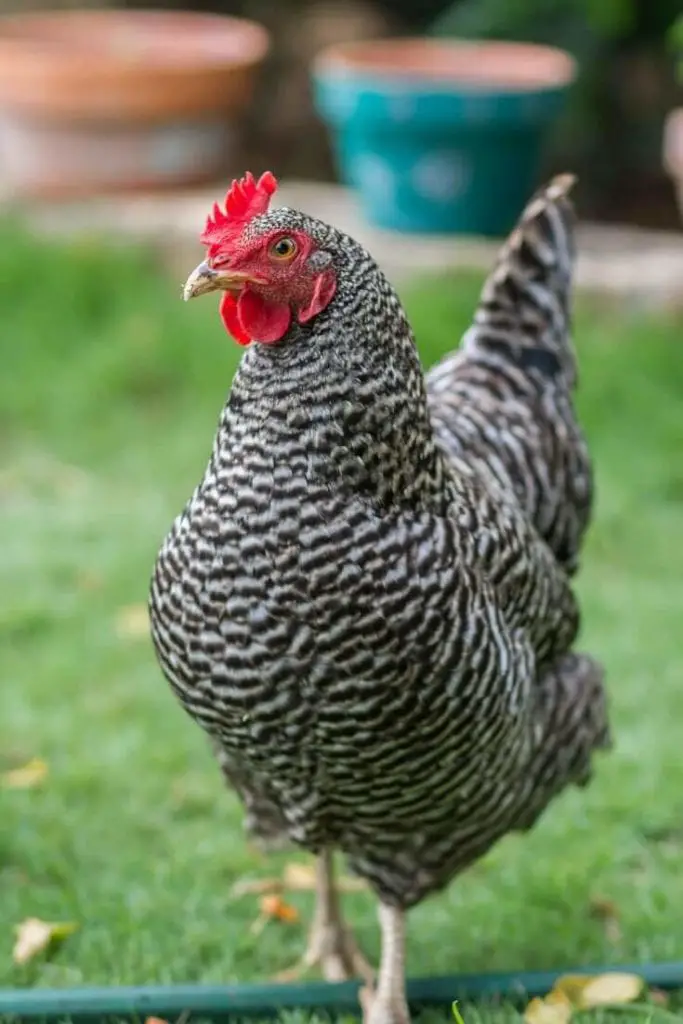
Sex-links are popular right now. These are a cross of a light colored hen with a dark (usually Rhode Island Red) rooster. The chicks can be sexed by color. Hens are dark and roosters are white. These lay very well and put on decent enough meat to eat.
Fancies are a good bird to get just to look at, and they may lay well or not. They can be for looks, for show, or some will pick rare nearly extinct breeds to raise despite them not producing as well as other breeds.
Most will get what they find available locally, and that is a good idea.
2. Roosters Can Be a Pain
Literally!
As I sit here writing this, I have two holes in my leg where my rooster got me the other day.
Our substitute mailman is a city person and refuses to deliver packages up to the house because of our rooster. Our regular guy is a farmer and is used to roosters, and has no problem with him.
I have tried just about everything I have ever read about aggressive roosters, but every once in a while he decides to take out his frustrations in life on me.
Real aggressive roosters should go in the pot. In my experience over the years, they are either mean or mellow, and you are not going to change them.
I have had nice mellow roosters before. A Light Sussex rooster we had was the best.
Roosters are also noisy, so if you live in town you will want to forgo the rooster in the flock. Out here in the country I enjoy the rooster crowing all day long.
One myth to bust… You do not need a rooster for eggs… Only if you intend to hatch your eggs.
3. Chickens Can Be Messy
If you let your chickens out to free-range, you may end up with chicken poop where you don’t want it. For some reason, they always tend to gravitate towards the front door and sidewalk, so that everyone will see you have chickens.
You may not want to walk barefoot through your yard if you have free range chickens.
4. All Eggs Don’t Taste the Same
White? Brown? Green? Blue?
The eggs you raise yourself will taste richer and have better flavor than the store bought eggs available at the local grocery store.
Your home raised eggs, even if they are different colors will taste the same. A rich golden yolk that doesn’t run all over when you fry it. Yummy!
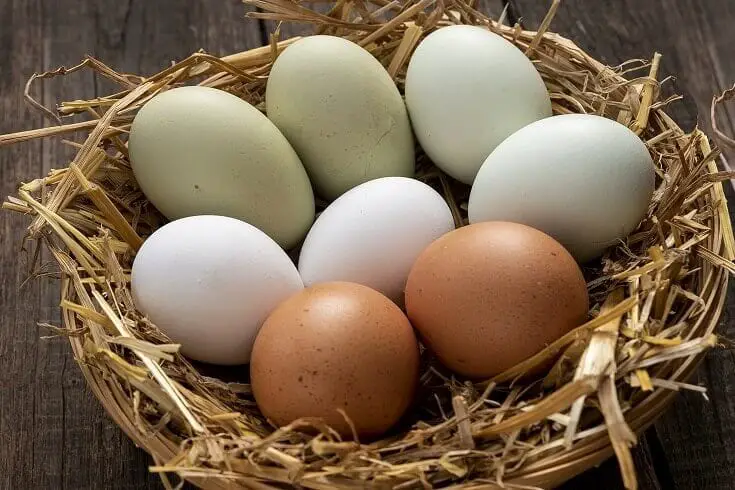
5. Chickens Taste Good To Everything
Speaking of yummy, you will need to realize that chickens are at the bottom of the food chain. Other than bugs and worms, just about everything finds chicken delicious, and they will make a great effort to eat your chickens if you are lax in your protection of your flock.
Sometimes they may not even want to eat them, just kill them. Twice we have had almost our entire flock wiped out.
The first time I think was a mink or weasel. It killed about 30, eight week old pullets we had in a section of our coop. It didn’t touch the full sized hens just the smaller ones.
The next time dogs killed all but four of our just getting ready to lay Delawares. We came home from church and the chickens were dead in a line from our house to the coop. The dogs just killed them and left them lay.
Make sure you are prepared to protect your flock from chicken predators.
6. Chicken Manure Will Kill Your Garden
You made the leap, you now have chickens, and look, free manure for the garden!
Chicken manure is a “Hot” manure. Meaning it has so much nitrogen in it that it will “burn” your plants and kill them.
Chicken manure, along with wood chips or straw for their bedding should be composted a year before adding it to your garden.
Then you will have some premium fertilizer for your prized veggies.
7. Store-Bought Coops are Made from Cheap Materials
So when you get these birds have you figured out how you are going to house them?
The coop kits are a great short term answer to that question, but don’t rely on them for more than a couple years, unless you take very good care of them.
We have used two of them and have generally been happy with them, but you can see the poor materials and workmanship when you put them together.
Plan on good, solid housing going forward with your flock. If you want to try chickens to see if they are for you then one of those coops might be just the ticket.
8. Chickens Can be a Gateway Animal
Maybe this warning should have gone first, but I put it here hoping you will have made up your mind to try chickens before you read this point.
Once you get chickens and start going to the feed store to get food, you might run into someone with goats. Or you are browsing ads online and someone giving away ducks or geese comes up.
A new friend decides to get a Yak and you realize how cute they are. You see a deal on turkey poults and decide to raise some for your friend's Thanksgiving.
Gateway animal indeed! You realize how much fun chickens are, and the next thing you know you have a menagerie.
Raising chickens is one of the easiest and most rewarding animals to get into on a small scale. They are fun to watch, have their own personalities, and reward you with meat and awesome fresh eggs.
Get some birds and give it a go!
Like this post? Don't Forget to Pin It On Pinterest!



